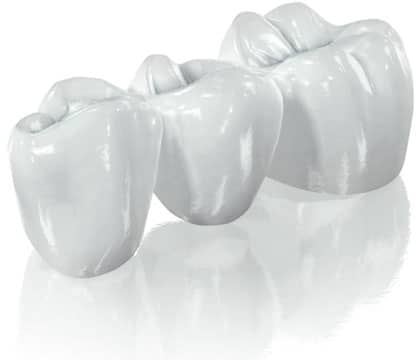
Do you know your patient right when dentures?
Knowing your rights as a patient gives you more self-esteem, strengthens your bargaining position over the dentist and helps make you feel better about your choices for the right dentures.
One way ahead: This article does not constitute legal advice.
We believe that talking at “eye level” can sustain the relationship of trust between the patient and the dentist.
Because decisions that are made out of a sense of powerlessness, the risk of “loyalty to purchase” and dissatisfaction. The result is endless discussions that can be grueling for both the patient and the dentist: in most cases, they have nothing to do with quality or value for money. They are more often an expression of a subjective perceived power imbalance on the part of the patient.
With our Free Checklist “the five most important patient rights for dentures“We would therefore like to contribute to a sustainable, positive relationship of trust between patient and dentist. In addition, the dental laboratories benefit from this.
Taking care of your rights as a patient gives you the added security of having made the right choice regarding your dentures …
Enter your data in the form now and get your free consultation.
Do not be afraid, easy to contact us. Write us an email to: [email protected] or call us on 05141360010
Among the main pieces of legislation that strengthen your rights as a patient with dentures include
- The Patient Law (Kassen- & Private patients)
- The Social Security Code (cash patients)
- GOZ / BEB (private patients)
In principle:
- Do not rush anything,
- Do not be pressured
- Ask for reflection
- Make use of your right to second opinion
Dentures Patient Law No. 1 – education and planning
Patients’ Rights Act:
(1) The treating person is obliged to inform the patient about all circumstances that are essential for consent. These include, in particular, the nature, extent, execution, expected consequences and risks of the measure as well as its necessity, urgency, suitability and chances of success with regard to the diagnosis or the therapy. Education should also indicate alternatives to the measure if several medically equally indicated and common methods can lead to significantly different pressures, risks or chances of recovery.
(2) The Enlightenment must
1.
orally by the treating person or by a person having the necessary training to carry out the measure; In addition, reference may also be made to documents which the patient receives in text form,
2.
done in time for the patient to make informed decisions about consent,
3.
be understandable to the patient.
The patient must be provided with copies of documents that he has signed in connection with the information or consent.
(3) It is not necessary to inform the patient as far as this is exceptionally dispensable due to special circumstances, in particular if the measure can not be postponed or if the patient has expressly renounced the information.
(4) If pursuant to § 630d (1) sentence 2 the consent of a person entitled to do so is to be obtained, he shall be informed in accordance with paragraphs 1 to 3.
(5) In the case of § 630d (1) sentence 2, the essential circumstances referred to in paragraph 1 shall also be explained to the patient in accordance with his understanding, insofar as his state of development and comprehension enables him to take the explanation and to the best of his own benefit does not conflict. Paragraph 3 applies accordingly.
Dentures Patient Law No. 2 – Costs
Social Code
Section 87 (1a) SGB V states:
“The contract dentist must prepare a free treatment and cost plan before the start of treatment, which includes the findings, the standard care and the actual planned care also in the cases of § 55 paragraph 4 and 5 on the nature, extent and costs.”
Here it is recommended to wait for approval from the health insurance.
Dentures Patient Law No. 3 – dental laboratory
Social Code
§ 87 para. 1a sentence 3,6 SGB V
In the treatment and cost plan, information on the place of manufacture of the dentures are to be made.
Our experience shows that there are now German dental laboratories that “import” dentures from third countries.
Therefore we recommend every patient to visit a dental laboratory or to request a list of our master dental laboratories free of charge.
Dentures Patient Law No. 4 – second opinion
§ 27 b SGB V “Second opinion law”
Well intentioned by the legislature was the “second opinion law”.
But in times when one dentist is supposed to examine the other during the day while the two colleagues are playing golf together on the weekend, the “objectivity” of the medical experts has lost value in the eyes.
Therefore, one alternative is to find out about the advantages and disadvantages of the planned dental prosthesis from a master dental laboratory of your choice – and about possible alternatives. Use the padento form for recommendations from experienced independent dental labs in your area.
Of course, a dental technician master’s lab can not and must not comment on diagnostic and medical aspects.
But in any case, dental care is an investment that you should be aware of.
On the one hand, it is certainly about your personal well-being and aesthetic aspects.
- But also the care of the dentures is an important criterion. Here are the key points in the overview:
- To what extent does your (working) everyday life enable you to take appropriate care??
Are there hygiene-critical aspects that may promote bad breath or bacterial growth. Bacterial herds can then lead to gum problems - If you are one of the patients who in principle tend to material incompatibilities, you should definitely exercise your right to inform yourself about the composition and biocompatibility of different materials.
- You can also ask your dentist if he will work with the dental laboratory YOU have chosen to have your dentures made.
Dentures Patient Law No. 5 – Warranty
Social Code
According to § 136a paragraph 4 (SGB V) takes over the dentist (…) and the supply of dentures a two-year warranty. Basically, this not only implies an obligation to rectify, but also a rectification right. However, the Federal Social Court has set limits to this in settled case law.
Reason: The case law regards the treatment contract for dentures as a service contract within the meaning of § 611 German Civil Code (Bürgerliches Gesetzbuch – BGB), which – since it concerns higher services – can be terminated at any time according to § 627 BGB. Retrofit rights see the rules to the service contract – in contrast to the contract for work, which although in the technical production of the denture, but not in its incorporation application applies – not before.
Decisive for determining a rectification right or any subsequent claims for damages by the health fund or the patient is therefore the question of whether the dentist has culpably violated his obligations under contract law. For this purpose, the fact that a service provided in the context of the service is flawed is not sufficient. A culpably behavior of the dentist that is in breach of the contract is only given if the result of the work is completely unusable and subsequent improvement is not possible or unreasonable for the insured (eg multiple unsuccessful attempts at improvement)..
Thus, if the dentures – especially after the findings of the opinion – can not be improved, but would be made new, the patient may in principle terminate the treatment contract and refuse further treatment!
Conclusion: The dentist alone has a right to repair the dentures; the dentist is not entitled to a new production against the will of the patient.
Summary:
Knowing your dental prosthesis rights BEFORE choosing one of the many options will not only strengthen your position vis-à-vis the dentist. It also helps you to choose the care that best suits your individual aesthetic needs and health needs as well as your budget.
Photo: Fotolia # 37537672 | Author: Matthias Stolt
Related Posts
-

High quality dentures of mdh ag
Dentures with quality guarantee The decision for a particular dental treatment is always linked to the question of the costs incurred. The statutory…
-

Foreign dentures – alternative to – made in germany?
International dental replacement – alternative to “Made in Germany”? What is the difference between foreign dentures and dental tourism? When it comes to…
-

Dentures in the dorow clinic lörrach – waldshut
dentures Our specialized specialists in the Dorow Clinic are very familiar with all types of dentures. Whether ceramic crowns made of zirconium oxide,…
-

High quality dentures in Berlin – dentist dr
Dentures like natural teeth Computer-aided manufacturing (CAD / CAM) of high-precision dentures in the shortest possible time Telescopic Crown – Dentures…
